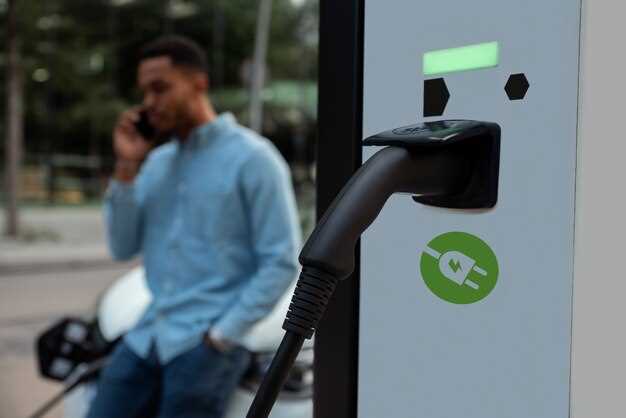
As the world moves towards a more sustainable future, the popularity of electric vehicles (EVs) continues to grow. For many car owners, transitioning to an electric car is an exciting journey, but it also raises important questions about charging infrastructure. Understanding EV charging stations is crucial for both current and prospective EV drivers.
Electric vehicles rely on a network of charging stations to replenish their batteries, much like traditional cars depend on gas stations. However, the variety of charging options available can be overwhelming for those who are new to the EV scene. This guide aims to demystify the types of charging stations, their locations, and the technology behind them, allowing drivers to make informed decisions.
In addition to convenience, understanding EV charging stations helps address common concerns about charging times and accessibility. Whether you’re a daily commuter or planning a long road trip, knowing how to efficiently charge your car can significantly enhance your driving experience. Get ready to dive into the world of electric charging and empower your journey towards sustainable driving.
Types of EV Charging Stations and Their Specifications

Electric vehicle (EV) charging stations are categorized based on their power output and charging speed. Understanding these types is essential for EV owners to make informed decisions regarding charging options.
Level 1 charging stations provide power through a standard 120-volt outlet. They typically deliver about 2 to 5 miles of range per hour of charging, making them suitable for overnight or extended parking. This type of charging is usually used at home, where convenience is prioritized over speed.
Level 2 charging stations operate at 240 volts and can charge an electric car significantly faster, offering a range of about 10 to 60 miles per hour. These stations are often found in public locations, such as shopping centers, workplaces, and dedicated charging hubs. They require a dedicated circuit and are compatible with most electric vehicles.
DC Fast Charging, also known as Level 3, is designed for rapid charging. These stations use direct current and can deliver 60 to 250 miles of range in just 30 minutes. This type is commonly located along highways, facilitating long-distance travel for electric cars. However, not all EVs are compatible with DC fast chargers, so it is crucial to check compatibility before use.
Wireless charging technology is an emerging option that allows electric vehicles to charge without physical connections. This type of charging employs magnetic resonance to transfer energy. While still in development phases, it holds potential for convenience and ease of use in urban settings.
Lastly, some charging stations are equipped with smart technology, enabling features such as remote monitoring, scheduling, and payment processing via mobile applications. These functionalities improve the overall user experience and efficiency in managing charging sessions.
In summary, understanding the diverse types of EV charging stations and their specifications can enhance the electric car ownership experience, ensuring that drivers can effectively plan their charging needs. Choosing the right type of charging station is essential for maximizing convenience and range while considering factors such as charging speed and location.
How to Locate and Use Public Charging Stations

Finding a public charging station for your electric car is essential for long-distance travel and everyday commuting. Various mobile apps and websites provide real-time information on available charging stations, their locations, and the types of chargers available. Popular apps include ChargePoint, PlugShare, and Electromaps, which also feature user reviews and ratings to help you choose the best options.
Your vehicle’s navigation system may also assist in locating charging stations. Many modern electric cars come equipped with integrated maps that display nearby charging points and provide estimated travel times to each location. You can filter results based on charger type, availability, and distance, making it easier to plan your trip effectively.
Before heading to a charging station, ensure your electric car is compatible with the charger type available–common types include Level 2 chargers and DC fast chargers. Each type has different charging speeds; Level 2 is suitable for regular daily use, while fast chargers are ideal for quick top-ups during long journeys.
When you arrive at a charging station, follow the instructions provided on the charging unit, which typically include scanning a QR code or using an app to start the charging process. Make sure you connect your car to the charger securely. Monitor your vehicle’s charging status through the app or the screen on the charging unit, which will display the charging speed and estimated time to full charge.
Once your electric car is fully charged, remember to disconnect the charger promptly to avoid inconvenience to other users. Most charging stations also have built-in features that notify drivers when their car is fully charged, allowing for a smooth and efficient charging experience for all electric vehicle owners.
Understanding Charging Times and Costs for Electric Vehicles
Charging times and costs are critical factors influencing the adoption of electric vehicles (EVs). The time it takes to charge an EV depends on several variables, including the type of charger, the vehicle’s battery capacity, and the state of charge when starting the charging process.
There are three main types of EV chargers: Level 1, Level 2, and DC Fast Charging. Level 1 chargers use standard household outlets and can take over 12 hours to fully charge an EV from empty, making them suitable for overnight charging at home. Level 2 chargers, commonly found in public charging stations, can recharge an EV in about 4 to 8 hours, depending on the battery size. DC Fast Chargers provide rapid charging capabilities, often replenishing 80% of a battery’s capacity in approximately 30 minutes, making them ideal for quick stops during long trips.
The cost of charging an electric vehicle also varies based on location and the type of charger used. Public charging stations may charge by the hour or by the kilowatt-hour (kWh). On average, the cost of electricity for EV charging ranges from $0.10 to $0.30 per kWh, translating to about $5 to $15 for a full charge, depending on the battery size and starting state of charge. Home charging is generally more economical, especially if the homeowner takes advantage of off-peak electricity rates.
Additionally, many utility companies offer incentives or special rates for EV owners, further reducing the overall cost of charging. Understanding these factors helps EV owners make informed decisions about the most efficient and cost-effective charging solutions for their electric cars.